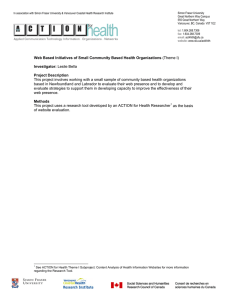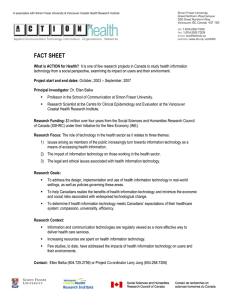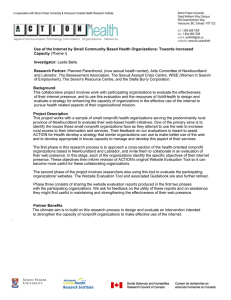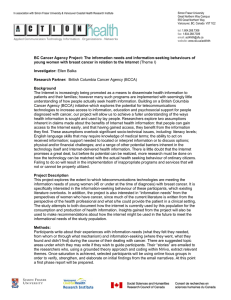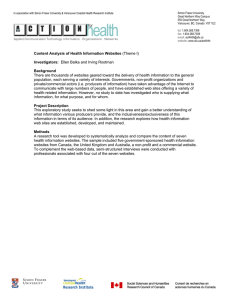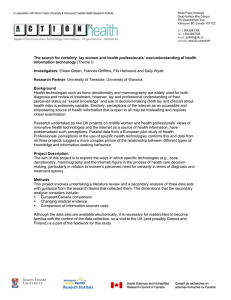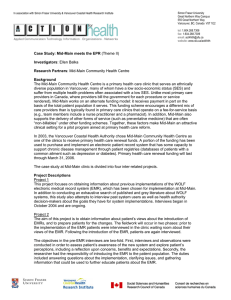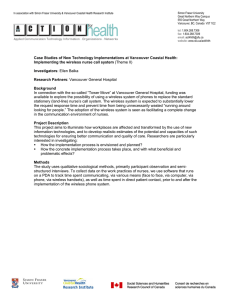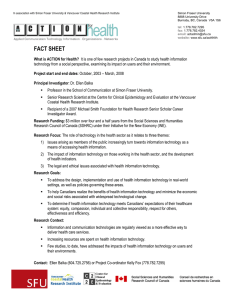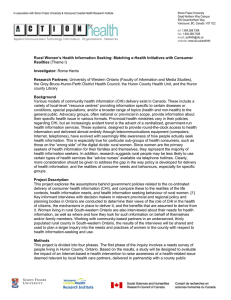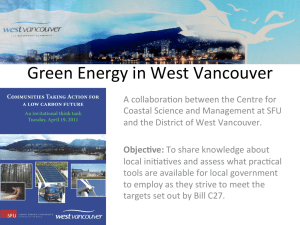In association with Simon Fraser University & Vancouver Coastal Health... Simon Fraser University
advertisement
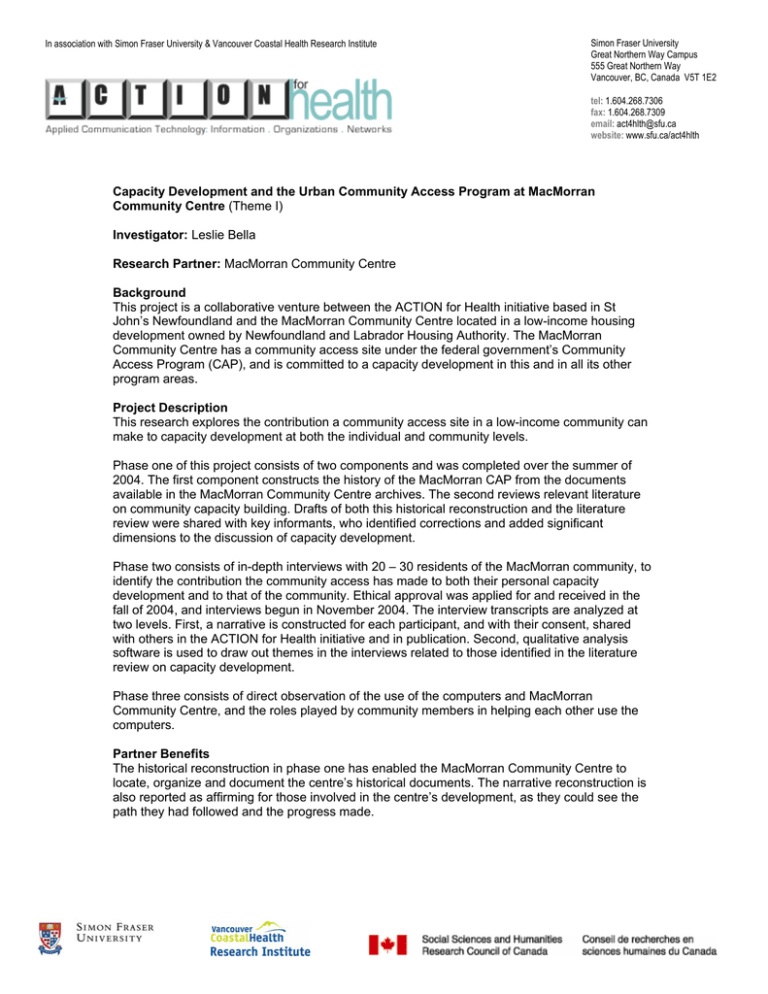
In association with Simon Fraser University & Vancouver Coastal Health Research Institute Simon Fraser University Great Northern Way Campus 555 Great Northern Way Vancouver, BC, Canada V5T 1E2 tel: 1.604.268.7306 fax: 1.604.268.7309 email: act4hlth@sfu.ca website: www.sfu.ca/act4hlth Capacity Development and the Urban Community Access Program at MacMorran Community Centre (Theme I) Investigator: Leslie Bella Research Partner: MacMorran Community Centre Background This project is a collaborative venture between the ACTION for Health initiative based in St John’s Newfoundland and the MacMorran Community Centre located in a low-income housing development owned by Newfoundland and Labrador Housing Authority. The MacMorran Community Centre has a community access site under the federal government’s Community Access Program (CAP), and is committed to a capacity development in this and in all its other program areas. Project Description This research explores the contribution a community access site in a low-income community can make to capacity development at both the individual and community levels. Phase one of this project consists of two components and was completed over the summer of 2004. The first component constructs the history of the MacMorran CAP from the documents available in the MacMorran Community Centre archives. The second reviews relevant literature on community capacity building. Drafts of both this historical reconstruction and the literature review were shared with key informants, who identified corrections and added significant dimensions to the discussion of capacity development. Phase two consists of in-depth interviews with 20 – 30 residents of the MacMorran community, to identify the contribution the community access has made to both their personal capacity development and to that of the community. Ethical approval was applied for and received in the fall of 2004, and interviews begun in November 2004. The interview transcripts are analyzed at two levels. First, a narrative is constructed for each participant, and with their consent, shared with others in the ACTION for Health initiative and in publication. Second, qualitative analysis software is used to draw out themes in the interviews related to those identified in the literature review on capacity development. Phase three consists of direct observation of the use of the computers and MacMorran Community Centre, and the roles played by community members in helping each other use the computers. Partner Benefits The historical reconstruction in phase one has enabled the MacMorran Community Centre to locate, organize and document the centre’s historical documents. The narrative reconstruction is also reported as affirming for those involved in the centre’s development, as they could see the path they had followed and the progress made.
